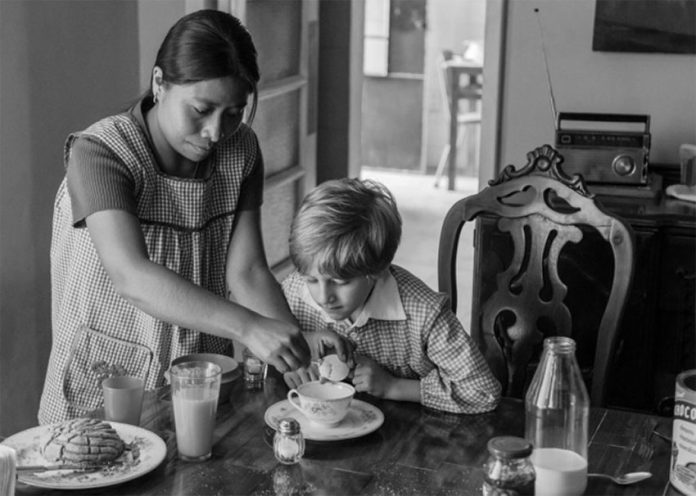Alfonso Cuaron’s Roma offers a timeless, original portrait of life in Mexico City in the early 1970s in the colonia of the same name. It made a limited cinematic debut earlier this month, and as of last Friday is now available to watch on Netflix.
More like a poem than a movie — in the Hollywood sense at least — Roma is not for those who crave plot, elaborate dialogue or choreographed action sequences. Shot almost in docudrama style, its subject matter is daily life in all its mundaneness.
Happenings are depicted from a distance, always teasingly close but rarely close enough to fully satisfy our curiosity. Many early exchanges in the movie are too quiet, too quick, or too “banal” to capture our attention completely.
But it’s precisely this subtlety — of both content and composition — that enables Roma to stir such honest, universal emotion. Its impact is multiplied by its imagery, which is consistently stunning in its beauty or in its oddness — sometimes both.
It’s easy to imagine Roma laid out frame by frame as a photographic exhibit. The combination of all these elements is what makes Roma stand out — as an exemplar of poetic realism, and a movie that makes a certain mark on the heart.
Roma’s realism is for the most part its distinct lack of plot. It follows the life of a character called Cleo (Yalitza Aparicio) and the family she serves (as the live-in “help”). Almost biographical in style, the film documents Cleo’s daily life and by way of doing so captures the sometimes fickle but ultimately consistent dynamics of her relationship with the family matriarch — Sofi — and her children.
Interspersed with daily life — with a distinct lack of emphasis — are what would classify as major events: Cleo’s confession of her pregnancy, the minor earthquake that shook the city in 1971 and the seemingly accidental incorporation of the Tlatelolco massacre which coincides with the start of Cleo’s labour pains.
Just as in real life, these incidents are understated when they occur, recognizable as major life events only in hindsight, in the broader context of time and history.
Along with realism, Roma provides poetry in equal measure and most impressively does so without compromising the former. As with many of the great 20th-century writers — most evocative perhaps of Ernest Hemingway or Anton Chekhov, characters’ personalities are exposed through as little as one or two symbolic actions.
A great example is our introduction to Cleo’s ultimately traitorous lover Fermín when he enters a cafe as Cleo and her friend are finishing their lunch. After Cleo gets up to leave with Fermín, he snaps back to her empty place to finish what Cleo has left of her soda. As well as revealing Fermín’s greed, this simple sketch combines with others to create the sense of impending tragedy in the movie’s early scenes, and to signify the depth of character that keeps us engaged.
It seems inevitable that much of the commentary on Roma will focus on its depiction of the dynamic between Cleo and her patrons; the struggle of Mexico’s poorer (by and large indigenous) populations versus the quality of life enjoyed by Mexico’s growing middle class.
The parallel the movie draws between the two main female characters — who represent these opposing social groups — is hard to miss, as is the symbolism of the closing image of Cleo climbing an outdoor staircase, seemingly ascending into the sky.
But whatever social commentary Roma does contain, it’s not deliberate. Any attempt at pointed critique would be drastically undermined by the movie’s conscious nostalgia, perfectly represented by the decision to shoot in black and white.
Above all Roma is a timeless, universal reminder of how the past — and our experience of it — is inevitably, beautifully colored by emotion.
Natalia Greene writes from Mexico City, where she lives in the Roma district.
